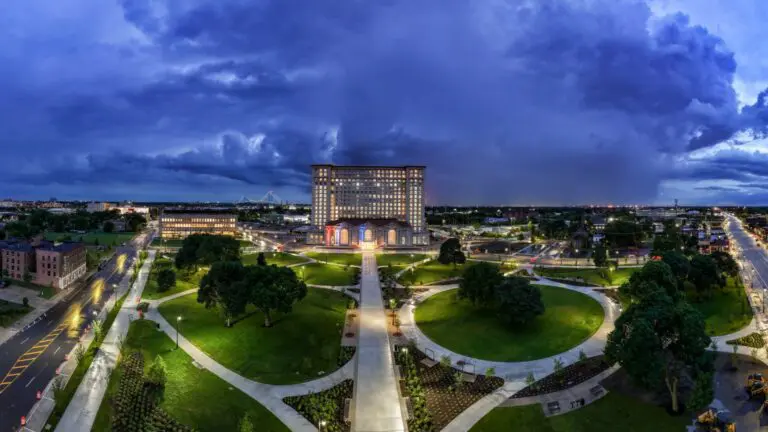Detroit’s formerly dilapidated Michigan Central Station restored
Through the efforts of over 3,000 artisans carrying out 1.7 million hours of work, the historic building is back to its prior beauty.

The Beaux Arts-style Michigan Central Station, which opened in 1913 in the Corktown neighborhood of Detroit, served over 4,000 train passengers a day during its heyday in the 1940s.
But by the time the station closed in 1988, the 18-story building was in total disrepair and had become a symbol of decline in the city. In 2018, however, the Ford Motor Company purchased it with the intention of turning the property into an “innovation hub.”
Michigan Central Station sat for three decades in decay as a standing symbol of the Rust Belt’s financial hardship.
The station, designed by the Warren & Wetmore and Reed & Stem architectural firms that designed New York City’s Grand Central Station, was built in iron, glass and stone in the Beaux Arts style of architecture, taking inspiration from Greek and Roman designs.
“It became a symbol of the rise and fall of Detroit,” Bill Ford, the company’s executive chair, told Architectural Digest. “Now it shows Detroit’s resilience.”
The renovation project employed over 3,000 skilled artisans and took 1.7 million hours of work over six years. It included refurbishing the rose-marble floors and columns, replacing or restoring 102,00 square feet of windows, regrouting Guastavino tiled vaulted ceilings, adding an all-glass roof, and installing bronze chandeliers.
Today, the train station is the crowning piece of the Michigan Central district, a $950 million, 30-acre innovation and cultural hub with space for retail, restaurants, public parks, cultural installations, and 1.2 million square feet of commercial space.
The hub includes the Newlab, formerly a book depository building and now an open-concept workspace for startups and Fortune 500 companies; the Bagley Mobility Hub, a six-story building with parking, retail, and outdoor plazas; and the Factory, a space with offices for Ford’s operations team. All of these are designed to attract culture and technology companies and offer a physical space for educational programs in science, technology, and engineering.
By the end of 2024, around 1,000 Ford employees will work at Michigan Central, with an ultimate goal of 2,500 by the end of 2028, according to a statement from Michigan Central.
“Everything Ford could save, we did, and other elements were re-created through technology and tenacity,” Melissa Dittmer, head of place at Michigan Central, said in a statement. “At the same time, it was important to us to respect The Station’s extraordinary past, including its ongoing role in Detroit’s cultural landscape. Weaving these histories through repurposed, state-of-the-art spaces will enable us to create an inclusive, forward-looking building that can propel innovation for the next 100 years.”




